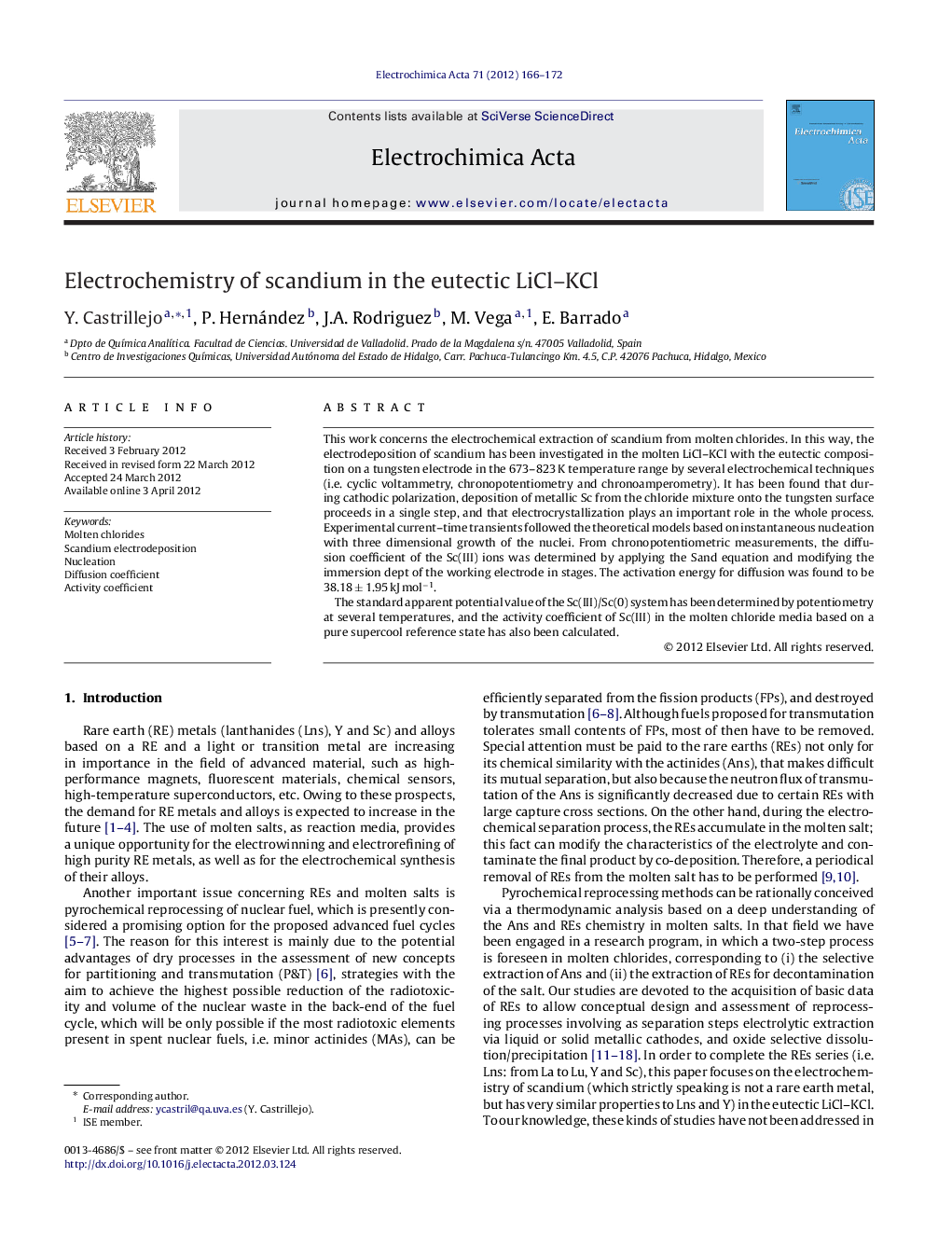| Article ID | Journal | Published Year | Pages | File Type |
|---|---|---|---|---|
| 188652 | Electrochimica Acta | 2012 | 7 Pages |
This work concerns the electrochemical extraction of scandium from molten chlorides. In this way, the electrodeposition of scandium has been investigated in the molten LiCl–KCl with the eutectic composition on a tungsten electrode in the 673–823 K temperature range by several electrochemical techniques (i.e. cyclic voltammetry, chronopotentiometry and chronoamperometry). It has been found that during cathodic polarization, deposition of metallic Sc from the chloride mixture onto the tungsten surface proceeds in a single step, and that electrocrystallization plays an important role in the whole process. Experimental current–time transients followed the theoretical models based on instantaneous nucleation with three dimensional growth of the nuclei. From chronopotentiometric measurements, the diffusion coefficient of the Sc(III) ions was determined by applying the Sand equation and modifying the immersion dept of the working electrode in stages. The activation energy for diffusion was found to be 38.18 ± 1.95 kJ mol−1.The standard apparent potential value of the Sc(III)/Sc(0) system has been determined by potentiometry at several temperatures, and the activity coefficient of Sc(III) in the molten chloride media based on a pure supercool reference state has also been calculated.
Graphical abstractFigure optionsDownload full-size imageDownload as PowerPoint slideHighlights► The electrodeposition of scandium on a tungsten electrode, in the eutectic LiCl–KCl molten has been investigated in the temperature range 673–823 K. ► Deposition of metallic Sc from the chloride mixture onto the tungsten surface proceeds in a single step, and that electrocrystallization plays an important role in the whole process. ► The diffusion coefficient of Sc(III), the activation energy for diffusion, the standard apparent potential of the Sc(III)/Sc(0) system and the activity coefficient of Sc(III) has been determined for the first time.
